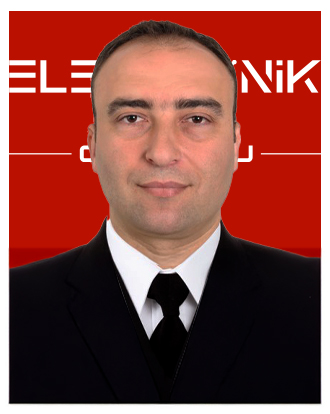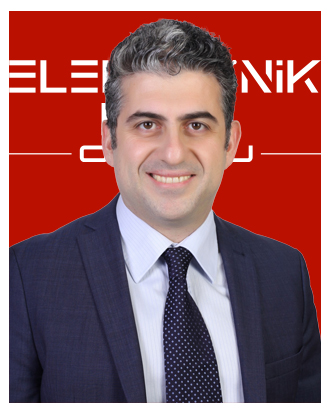





The development of a concept for an Electronic Warfare School is intended to address the needs of the defense industry in areas such as electronic warfare, electronic support, radar systems, and electronic attack techniques. Within this framework, theoretical and practical training will be provided to industry professionals, with the objective of enhancing the competencies of the relevant ecosystem in these domains.
The Electronic Warfare School provides participants with a professional learning environment, equipped with world-class educational methodologies and modern technologies. The training is supported by theoretical lessons, simulations, practical exercises, and analysis-driven workshops. Training management is planned in accordance with quality standards and is continually updated through ongoing improvement processes.
The target audience of the Electronic Warfare School includes engineers, technical staff, managers, analysts, and other professionals working in the defense industry and related sectors, who wish to acquire basic or advanced knowledge in electronic warfare.
The training programs are developed and conducted with the support of industry professionals and academics with relevant sector experience. In this context, the Expert Advisory Board established for the ELECTRONIC WARFARE SCHOOL defines its vision and regularly provides feedback on the training content.
Expert Advisory Board (EAB)” within the ELECTRONIC WARFARE SCHOOL provides feedback and gives recommendations on the following topics:
Coordinators” within the ELECTRONIC WARFARE SCHOOL perform the following activities based on the needs of the Defense Industry:
You can create a preliminary request for an existing course by selecting it from the "Courses" list and filling in the relevant sections under the "Request" tab.
You can create a preliminary request for an existing course by selecting it from the "Courses" list and filling in the relevant sections under the "Request" tab.
If the course you need is not in the existing list or requires customization, you can submit the course content, location, and preferred instructor (if any) here.
If the course you need is not in the existing list or requires customization, you can submit the course content, location, and preferred instructor (if any) here.

Taylan Gülüm

Ahmet Kerim Kamçı

Mehmet Ali Tuğay

Erdal Kılıçarslan

Prof. Dr. Ömer Karal

Prof. Dr. Ali Kara
It is aimed to provide introductory information on Electronic Warfare (EW) to technical and non-technical staff of the organisations working in Defence Industry
It is aimed to provide introductory information on Electronic Warfare (EW) to technical and non-technical staff of the organisations working in Defence Industry. The emergence and general applications of the EW concept, along with its importance in both war and peace, will be discussed.
Practical exercises based on real-world scenarios
Training will be given in the classroom, through presentation files, videos and visuals.
Participants should have technical concept knowledge at terminology level.
| Önerilen Dış Kaynaklar |
|---|
| EW 101: A first course in electronic warfare, David Adamy |
| EW 103: Tactical battlefield communications electronic warfare, David L. Adamy |
With this training, it is aimed to transfer basic level information about EW objectives and tasks to the personnel working in the technical field of the organizations working in the Defense Industry.
Electronic Warfare (EW) applications are very crucial in both wartime and peacetime. With this training, it is aimed to transfer basic level information about EW objectives and tasks to the personnel working in the technical field of the organizations working in the Defense Industry.
Practical exercises based on real-world scenarios
Training will be given in the classroom, through presentation files, videos and visuals.
Participants should have technical concept knowledge at terminology level.
| Önerilen Dış Kaynaklar |
|---|
| EW 101: A first course in electronic warfare, David Adamy |
| EW 103: Tactical battlefield communications electronic warfare, David L. Adamy |
The aim of this training is to teach the participants the use and analysis methods of Electronic Support Measures (ESM) systems and to improve their signal collection and threat assessment skills.
The aim of this training is to teach the participants the use and analysis methods of Electronic Support Measures (ESM) systems and to improve their signal collection and threat assessment skills.
This is a comprehensive training program on the basic principles and mechanisms of Electronic Support Measures (ESM) systems and their use in military operations. The training will cover the processes of detecting and analyzing enemy signals, threat assessment and gaining operational advantage with ED systems. Training will be given in the classroom, through presentation files, videos and visuals.
Technical personnel with basic knowledge of electronic warfare or ESM systems.
| Önerilen Dış Kaynaklar |
|---|
| Practical ESM Analysis, Sue Robertson |
The aim of this course is to teach participants the mechanism of Electronic Attack (EA) systems, attack strategies and techniques to gain advantage in an electronic warfare environment.
The aim of this course is to teach participants the mechanism of Electronic Attack (EA) systems, attack strategies and techniques to gain advantage in an electronic warfare environment.
It is a comprehensive training program covering the basic principles, strategies and operational applications of Electronic Attack (EA) systems. The course covers electronic jamming, deception techniques, attacks on enemy radar and communications systems, and the role of EA in the electronic warfare environment. Training will be given in the classroom, through presentation files, videos and visuals.
Technical staff with basic knowledge of electronic warfare and electronic attack.
| Önerilen Dış Kaynaklar |
|---|
| An Introduction to Electronic Warfare; from the First Jamming to Machine Learning Techniques, Chi-Hao Cheng, James Tsui |
The aim of this training is to teach participants the functioning of Electronic Protection (EP) systems, effective protection methods against enemy electronic attacks, and strategies to enhance operational security in an electronic warfare environment.
The aim of this training is to teach participants the functioning of Electronic Protection (EP) systems, effective protection methods against enemy electronic attacks, and strategies to enhance operational security in an electronic warfare environment.
This is a comprehensive training program covering the basic principles of Electronic Protection (EP) systems, threat analysis and countermeasure development processes. In the training, the methods of protection of EP against hostile electronic attacks, applicability in radar and communication systems, resistance to environmental factors and threat prevention strategies are examined in details. Training will be delivered in the classroom, through presentation files, videos and visuals.
Technical staff with basic knowledge of electronic warfare or electronic protection systems.
| Önerilen Dış Kaynaklar |
|---|
| Emitter Detection and Geolocation for Electronic Warfare, Nicholas A. O’Donoughue |
The aim of this training is to teach the participants the basic principles of SIGINT, signal collection and analysis techniques, ELINT and COMINT applications and to gain knowledge on intelligence generation in military operations.
Filters are indispensable elements of all communication systems, but filter design in the high-frequency region requires additional knowledge and skills. This training package aims to gain filter design skills in the high-frequency region by considering the criteria required by this frequency region and to gain measurement skills based on practical measurement of the performance of the filters produced.
It is an advanced training program covering Signal Intelligence (SIGINT) concepts, signal collection and analysis methods, threat assessment and intelligence generation processes. The course covers the functioning and operational importance of Electronic Intelligence (ELINT) and Communications Intelligence (COMINT) sub-branches within the scope of SIGINT. Training will be given in the classroom, through presentation files, videos and visuals.
Technical staff with basic knowledge of signal processing and intelligence processes or with experience in electronic warfare projects.
| Önerilen Dış Kaynaklar |
|---|
| SIGINT : the Secret History of Signals Intelligence in the World Wars, Matthews, Peter F. |
The aim of the training is to provide technical staff with a detailed understanding of the principles and components of radar systems, radar signal generation and processing techniques, and analysis processes in radar applications.
The aim of the training is to provide technical staff with a detailed understanding of the principles and components of radar systems, radar signal generation and processing techniques, and analysis processes in radar applications.
This is an advanced training program that comprehensively covers the basic structure of radar systems, their operating mechanisms, signal processing techniques and their importance in defense applications. This course introduces all components of radar technologies and provides a theoretical understanding of the role of radar systems in modern military and civil applications. The training will be given in the classroom, through presentation files, videos and visuals.
Technical staff with basic knowledge of radar technologies and signal processing.
| Önerilen Dış Kaynaklar |
|---|
| Electronic Warfare and Radar Systems Engineering Handbook , Naval Air Warfare Center Weapons Division |
The aim of the training is to enable technical staff to learn the principles of radar signal processing, signal detection and target tracking techniques, as well as to perform analyses to improve the performance of radar systems.
The aim of the training is to enable technical staff to learn the principles of radar signal processing, signal detection and target tracking techniques, as well as to perform analyses to improve the performance of radar systems.
This is an advanced course covering radar signal processing techniques and their critical importance in radar applications. The course details radar signal processing, signal filtering, target detection, tracking and classification. Participants will gain an understanding of radar signal processing and data analysis in modern radar systems. Training will be delivered in the classroom, through presentation files, videos and visuals.
Technical staff with basic knowledge of radar systems and signal processing.
| Önerilen Dış Kaynaklar |
|---|
| Advanced signal processing handbook : theory and implementation for radar, sonar, and medical imaging real time systems, Stergiopoulos, Stergios |
The aim of the training is to teach the participants the functioning of RF guided missile systems, target detection and tracking processes using radar signals and RF guidance techniques, and the role of these technologies in military defense strategies.
The aim of the training is to teach the participants the functioning of RF guided missile systems, target detection and tracking processes using radar signals and RF guidance techniques, and the role of these technologies in military defense strategies.
This is an advanced training program that comprehensively covers the working principles of RF guided missile systems, RF targeting and tracking technologies. In this training, RF guided missile components, radar and RF signal usage, tracking and targeting processes of missiles will be detailed. Participants will have the opportunity to learn theoretically the importance and applications of RF guided systems in military operations. The training will be delivered in the classroom, through presentation files, videos and visuals.
Technical staff with basic knowledge of RF technologies, radar systems or guidance technologies.
| Önerilen Dış Kaynaklar |
|---|
| - |
The aim of the training is to enable technical staff to understand the basic principles of electro-optical and infrared systems, their applications in military operations and techniques for their use in weapon systems.
The aim of the training is to enable technical staff to understand the basic principles of electro-optical and infrared systems, their applications in military operations and techniques for their use in weapon systems.
This is a training program that provides comprehensive information about electro-optical (EO) and infrared (IR) systems and weapon systems that work with these technologies. The course covers in-depth topics such as the structure, operating principles, target detection, tracking and defense applications of EO and IR systems. Participants will have the opportunity to learn the strategic importance of EO and IR systems in military operations. The training will be delivered in the classroom, through presentation files, videos and visuals.
Technical staff with basic knowledge of optics and electronic warfare and experience in electro-optical or infrared technologies.
| Önerilen Dış Kaynaklar |
|---|
| - |
The aim of this training is to teach the participants the processes such as pre-mission Mission Data File (MDF) preparation, risk assessment, equipment preparation, data analysis and to enable them to evaluate and improve operational efficiency through post-mission analysis.
The aim of this training is to teach the participants the processes such as pre-mission Mission Data File (MDF) preparation, risk assessment, equipment preparation, data analysis and to enable them to evaluate and improve operational efficiency through post-mission analysis.
It is a comprehensive training program that includes the Mission Data File (MDF), Mission Data File Preparation Software and post-mission data analysis programs used in pre-mission preparations and post-mission analysis for military operations. The training covers planning, data file preparation, data collection and analysis processes for successful execution of operational missions. The training will be given in the classroom, through presentation files, videos and visuals.
Technical staff with basic knowledge of mission planning, data collection or analysis processes.
| Önerilen Dış Kaynaklar |
|---|
| - |
The aim of the course is to enable technical staff to acquire the skills to design and develop FPGA-based Electronic Warfare (EW) systems and to understand hardware-based solutions for real-time signal processing and EW systems.
The aim of the course is to enable technical staff to acquire the skills to design and develop FPGA-based Electronic Warfare (EW) systems and to understand hardware-based solutions for real-time signal processing and EW systems.
This is an advanced training program that aims to provide the knowledge and skills required to develop Electronic Warfare (EW) applications on Field Programmable Gate Arrays (FPGAs). The course covers FPGA architecture, EW signal processing techniques, developing hardware-based EW solutions and real-time signal processing applications. A hands-on training will be given using appropriate FPGA boards.
Technical personnel with basic knowledge of FPGA design or EW systems.
| Suggested External Resources |
|---|
| Introduction to LabVIEW FPGA for RF, Radar, and Electronic Warfare Applications, Terry Stratoudakis |
The aim of the training is to familiarize technical staff with the operation and use of radar-assisted weapon systems, threat analysis and development of countermeasures.
The aim of the training is to familiarize technical staff with the operation and use of radar-assisted weapon systems, threat analysis and development of countermeasures.
This training program covers the working principles of radar-assisted weapon systems, their role in military operations and threat analysis processes. Topics such as radar-assisted weapon systems, target detection, tracking, threat assessment and countermeasures will be covered in depth. The training will be given in the classroom, through presentation files, videos and visuals.
Technical personnel with basic knowledge of radar systems and threat analysis
| Recommended Outsourcing |
|---|
| - |
The aim of this course is to teach participants the appropriate test methods to evaluate the performance of EW systems, to examine various test scenarios and to gain the ability to perform analysis to ensure system reliability in real operational conditions.
The aim of this course is to teach participants the appropriate test methods to evaluate the performance of EW systems, to examine various test scenarios and to gain the ability to perform analysis to ensure system reliability in real operational conditions.
This is a training program covering the test methods and analysis processes required to evaluate the performance and reliability of Electronic Warfare (EW) systems. The course covers the testing of EW systems, evaluation criteria, the impact of environmental factors and modern test technologies.
Staff with basic knowledge of electronic warfare and test techniques
| Recommended Outsourcing |
|---|
| - |
The aim of this training is to enable technical personnel to understand the strategic importance of space-based Electronic Warfare (EW) systems and gain advanced theoretical and practical knowledge about their design and applications. Participants will acquire knowledge about modern techniques and tools used in space-related EW scenarios.
The aim of this training is to enable technical personnel to understand the strategic importance of space-based Electronic Warfare (EW) systems and gain advanced theoretical and practical knowledge about their design and applications. Participants will acquire knowledge about modern techniques and tools used in space-related EW scenarios.
This course covers the principles, strategies, and applications of space-based Electronic Warfare (EW) systems. It emphasizes the dynamics of the space environment and teaches participants space-specific EW techniques. Participants will gain advanced knowledge in the design, analysis, and operational applications of space EW systems.
Technical personnel with basic knowledge of electronic warfare.
| Recommended Outsourcing |
|---|
| - |

Savunma Sanayi Akademi
Üniversiteler Mahallesi ODTÜ TEKNOKENT, 06800, Çankaya/Ankara/Türkiye
+90 312 424 19 62
akademi@ssb.gov.tr